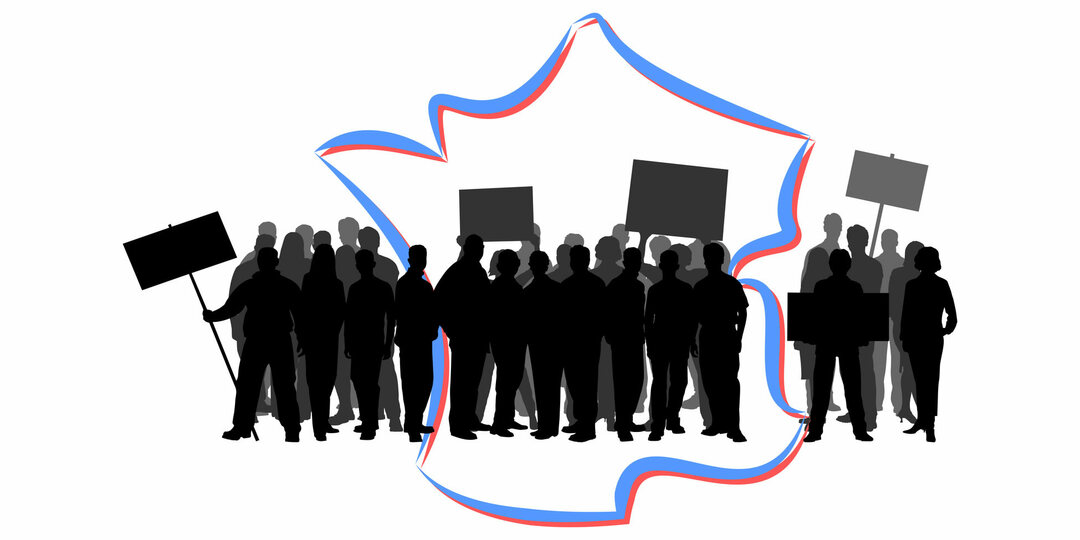French May 1968
Miscellanea / / July 04, 2021
By Guillem Alsina González, in Jan. 2019
 1968 was an unusual year, given to protests: the Spring of Prague, the protest of the Zócalo Square in Mexico and, above all, the French May 68, so idealistic and idealized.
1968 was an unusual year, given to protests: the Spring of Prague, the protest of the Zócalo Square in Mexico and, above all, the French May 68, so idealistic and idealized.
The so-called "May 68" in reference to the events of May 1968 in Paris, consisted of a series of protests carried out mainly by students throughout France, with particular intensity in the capital.
Some historians affirm that those of 68 were protests that are part of a cycle, in which the Spring of the Peoples from 1848.
It began as a student protest against the consumer society and western imperialism, to which they ended up joining left-wing parties, and which had echoes in other European countries such as Spain (then gripped by the dictatorship Franco)
The wick left from the University of Nanterre, but spread like wildfire to the rest of the country. Precisely in Nanterre, a young student and activist named Daniel Cohn-Bendit would stand out, who would give, a posteriori, one of the iconic images of that May 68 when he verbally confronted a police officer outside the Sorbonne gates Parisian.
The movement protest was strongly influenced by hippy culture and peace that began in those times, and the so-called “countercultural” currents (and that today we would know as alternatives), with which they sought to break with a warmongering and conservative past to seek a more open, tolerant and pacifist.
The feminist movement also had a lot to say in a renovating movement, like the sexual openness that was experienced in those times (remember, those of "love free ”), thanks to which taboos began to be broken, especially those related to female sexuality and that had so gripped women in a society impregnated with sexism.
On May 2, the prestigious Sorbonne University was closed by its dean in anticipation of altercations that could occur between left-wing and right-wing students as a result of a march from Nanterre.
Indeed, the following days there were clashes between the police and the students, it seems that due to the fact that the police charged without motives or previous provocations against the protesters of left.
The environment the following days would heat up, and the protesting students came to erect barricades in the heart of the Latin Quarter to try to stop the police charges. The situation was almost one of street warfare.
In the middle of the month, a general strike was called, taking advantage of the fact that the population Parisian (historically very given to social unrest) sympathized with the revolutionary student movement.
On May 13, nine million workers went on strike throughout France, and a demonstration was called in Paris that brought together 200,000 people and ended up occupying the Sorbonne.
Such an occupation would probably be the most iconic of the protest. In some factories, such as Renault's, workers also occupy the facilities, and little by little more Collectives (such as air traffic controllers or journalists) join the strike, leaving France collapsed and inert.
Panic begins to spread between the government (headed by de Gaulle and conservative) and the economic elites, who feared a general insurrection similar to the one revolution from 1789. Damage to the economy they are palpable, and the world looks at the country, some with admiration (those on the left) and others with concern (those on the right).
Seeking to dismantle the movement, and while the government and the employers negotiate with the unions, de Gaulle announces, on May 30, the call for elections in 40 days.
Finally, the maneuver worked, de Gaulle's party won the elections reinforcing its majority, and the waters began to return to their course over the following months.
However, the social revolt of May 68 also achieved victories in the form of social improvements, especially for the workers. Furthermore, the defeat in the referendum on the country's regional reorganization cost de Gaulle his position the following year, a victory. a posteriori of the movement.
May 68 impacted the world, and its heritage is still expressed today.
Many protests, such as the 15-M movement in Spain, owe their inspiration and forms of action to the French May 68.
Also many of the slogans of that protest, such as “be realistic, ask the impossible"Or"dreams are reality”Would become part of popular culture.
Photo Fotolia: RVNW
Issues in French May 1968